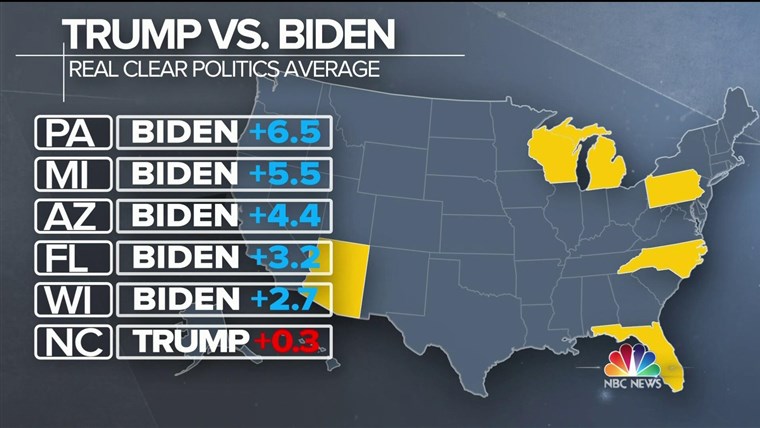After months of deliberation, Sen. Joe Manchin, the most conservative Democrat in the Senate and a frequent Donald Trump ally, announced on Tuesday that he will not run for governor of West Virginia in 2020. Manchin’s decision to pass on a challenge to billionaire Republican Gov. Jim Justice practically clears the field for Stephen Smith, a 39-year-old community organizer who is running a progressive-populist campaign like no other in the state’s recent history.
Smith’s anti-establishment campaign, dubbed West Virginia Can’t Wait, recently out-raised all of its Republican opponents — including the incumbent — combined, almost entirely through small-dollar donations. And in late July, his campaign became the first in West Virginia history to unionize, ratifying a collective bargaining agreement with Campaign Workers Guild.
“West Virginia needs a movement, not a king,” Smith’s campaign said in a statement following Manchin’s announcement. “No elected official–not Jim Justice, not Joe Manchin, not me–can save us. We have to save ourselves. So while the media and political class were watching this soap opera unfold, our volunteers were busy building a people’s political machine around the state.”
Smith supporters point to Paula Jean Swearengin, an environmental activist who challenged Manchin from the left in 2018, as evidence of the desire for real grassroots opposition within the state. Though Manchin won the primary election, Swearengin managed to win 30 percent of the vote with virtually no name recognition and only $179,000.
Manchin, who has been the state’s most prominent Democrat for decades, has voted with Trump’s agenda more than 60 percent of the time. He’s a staunch ally of the fossil fuel industry, supports the border wall, once shot the “cap-and-trade” climate bill with a rifle, and was the lone Democrat to vote for the confirmation of Brett Kavanaugh to the Supreme Court.
Manchin’s decision not to run for governor was so last minute that his communications director wrote two different statements and didn’t know which one the senator would use on Tuesday morning, according to the New York Times. He similarly teased a potential gubernatorial run in 2016, before deciding against it and throwing his support behind Justice, who was a Democrat at the time.
Smith refers to the movement as a “people’s campaign” and explicitly names class enemies.
Smith holds many of the standard progressive policy positions, like support for Medicare for All and tuition-free college, but he rejects the progressive label. Instead, he refers to the movement as a “people’s campaign” and explicitly names class enemies.
In early August, Smith’s campaign hosted a national strategy call to pass on the tactics they’re using on the campaign trail to out-of-state organizers. Traditional campaigns, he said, rely exclusively on money power and have no interest in expanding the electorate. “They’re not gonna spend it on organizing; they’re gonna spend it on messaging — that campaign is going to be safe, not brave,” Smith continued.
“It’s going to be run to the benefit of the interests who paid for it, so a handful of lobbyists and corporate backers and probably the candidate themselves, and they’re not gonna give a damn about people power.”

Photo: Raymond Thompson Jr. for The Intercept
Conventional wisdom has long held that Democrats in so-called red states should side with conservatives if they want to get re-elected. But Smith’s campaign argues that West Virginia was never “Trump Country” to begin with. It’s the state that handed Trump his second-largest margin of victory in 2016, but it’s also where all 55 counties went for Sen. Bernie Sanders, I-Vt., over Hillary Clinton in the Democratic primary.
Voters are often told politics is a contest between the left and the right, campaign manager Katey Lauer said on the strategy call, but the fight they’re picking is an “up-down one” against the wealthy few and the politicians they help elect.
“By working together, we have a whole lot more power than if we’re separated.”
When West Virginia Can’t Wait submitted its first-quarter campaign finance filings, the secretary of state’s software broke. “They had to call in the people who actually created the software because the file was too big to load,” Smith told The Intercept in May.
That fundraising prowess continued into the second quarter, when Smith’s campaign reported raising more than $146,000, which included $38,952 from around 1,000 individual donors who gave less than $250. During the same three-month period, Justice, a coal tycoon and the wealthiest person in the state, raised $57,650, entirely at a big-ticket fundraiser headlined by Donald Trump Jr. He received just 15 small donations and also put $131,500 of his own money toward the campaign. The other major Republican contender, Woody Thrasher, received eight small donations and raised a total of $36,385 in the second quarter.
Join Our Newsletter
Original reporting. Fearless journalism. Delivered to you.
I’m in
Smith’s campaign, which formally launched at the end of November 2018, is focused on building lasting political infrastructure. It has trained 229 county captains, which represent each of the state’s 55 counties; volunteers have hosted 92 town halls and held more than 400 organizing meetings. As of now, 38 additional constituency teams, groupings of similar people like seniors or veterans, are preparing to launch and 42 other candidates have joined in to run alongside Smith.
On the organizing call, Smith talked about how the campaign’s model allows for potent collaborations across the state. For example, its LGBTQ constituency team recently joined forces with campaign leaders in Kanawha and Cabell counties to hold a fundraiser for first-time candidate Tina Russell, a military veteran and black woman who is running for a seat in the House of Delegates against Eric Porterfield, a bigoted Republican lawmaker who has compared the LGBTQ community to the Ku Klux Klan.
“The stakes are high here,” Smith said, “and by working together, we have a whole lot more power than if we’re separated.”
Wait! Before you go on about your day, ask yourself: How likely is it that the story you just read would have been produced by a different news outlet if The Intercept hadn’t done it? Consider what the world of media would look like without The Intercept. Who would hold party elites accountable to the values they proclaim to have? How many covert wars, miscarriages of justice, and dystopian technologies would remain hidden if our reporters weren’t on the beat? The kind of reporting we do is essential to democracy, but it is not easy, cheap, or profitable. The Intercept is an independent nonprofit news outlet. We don’t have ads, so we depend on our members — 24,000 and counting — to help us hold the powerful to account. Joining is simple and doesn’t need to cost a lot: You can become a sustaining member for as little as $3 or $5 a month. That’s all it takes to support the journalism you rely on.Become a Member

